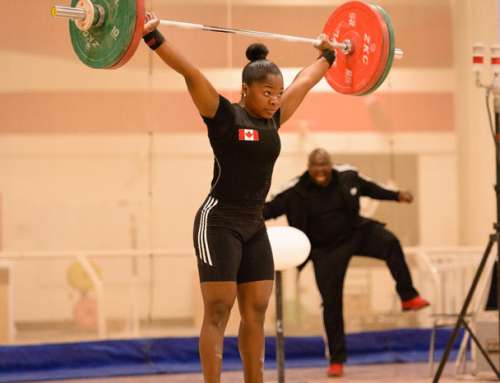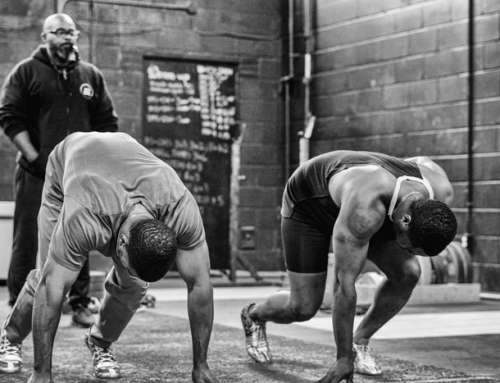Have Strength & Conditioning coaches and Personal Trainers become afraid to actually train their athletes and clients?
With the increased influence of physiotherapists and chiropractors on the practices of many strength coaches, we have seen a dramatic increase in the use of movement screens, movement pattern exercises, corrective exercises, and the use of resistance bands and stability work. While each of these tools or methods might have some value when applied in a limited way at the appropriate time, in some cases one has to wonder if the athletes of such “strength coaches” are actually performing much real training?
Please understand that I am not denying the importance of an effective assessment process and an initial training phase that focuses on things like muscle balancing and addressing orthopaedic issues. These are both part of a systematic training plan. What I am saying is that you have all these people with limited experience in the strength and conditioning field telling athletes that they should NEVER do exercises like Behind the Neck Presses, or Good Mornings, or potentially even Squats (!). I have heard some of these described as, “dangerous” and even “the worst exercises known to man”.
However, as I said, few of these “strength coaches” have any in-depth knowledge of strength and conditioning methods, and a proper understanding of when and why some of these exercises can and should be used in addition to when and why they should be avoided. They only know what they read in a textbook written by some therapist, who is often writing for “the lowest common denominator”.
Are Behind the Neck Presses a poor choice for those with very tight or otherwise dysfunctional shoulders? Absolutely!
Is this a common problem? Yes.
Is this exercise safe and effective for those who do possess good shoulder mobility and stability? Definitely!
Do Good Mornings or Squats have the potential to cause injuries if they are performed incorrectly, especially under significant load? Certainly!
However, an important role of the Strength Coach or Personal Trainer is to ensure their athletes or clients learn and use proper lifting form and employ appropriate loads. If you are not confident in your ability to teach a proper Good Morning or Squat then, by all means, do not include these exercises in your training programs!
But please, do not assume that is true for everyone.Those of us who know how to teach and program these lifts will continue to do so and our athletes and clients will benefit accordingly.
Why did most Strength & Conditioning coaches or Personal Trainers choose this profession? It’s because we as strength coaches wish to take our athletes to the next level. We want to produce results – meaningful, significant, even dramatic results! Not babysitting an athlete for the whole offseason, just going through the motions, “doing no harm” but not much good either.
I understand this mindset if the goal for a particular athlete is all about rehab, but not if you are simply scared to do your job, which is ensuring your athletes do the kind of work that will help them to reach their goals. Are you really helping your athlete?
So many athletes spend so much time during the off-season doing corrective exercises and quickness and agility drills that they never get much stronger and fail to build the “armour” that will help protect them during high-impact collisions. Durability can be dramatically improved through training, along with strength, power, and speed!
To coaches who say their athlete is strong enough, what does that even mean? It seems some coaches are afraid to get their athletes strong, explosive, and fast. It seems like getting your athletes strong and explosive is no longer the primary goal of strength training programs, or that lifting heavy is no longer within the so- called professional guidelines, as this could be deemed as dangerous or risky. Ben Johnson was a sprinter and he could squat 600 pounds for two sets of six reps to just above parallel weighing just 170-175 pounds! Are you really “strong enough”?
I believe hockey players benefit greatly from being strong as hell, and I doubt any of them can squat that much.
Let’s get real and let’s take back our profession. Build a team of therapists and chiropractors you trust, stop trying to be a jack of all trades, and do what it takes to get your athletes RESULTS.
I know when I look myself in the mirror before I go to bed at night I can say I gave my guys and gals my all, so they in turn can give their all in their chosen sport. Can you say the same?

